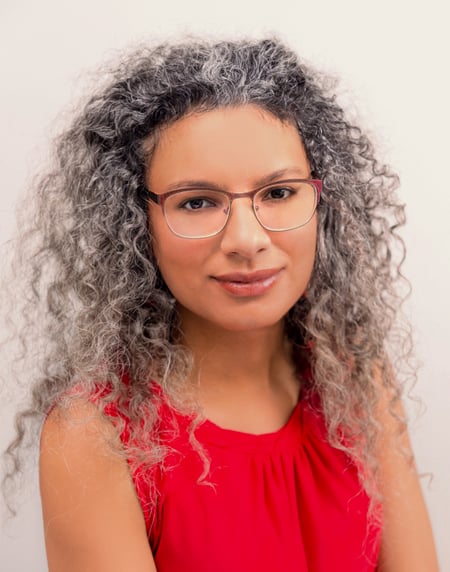Faculty voice: Poetry for the moment

Lauren Russell is an assistant professor in the Residential College in the Arts and Humanities and is director of the RCAH Center for Poetry. Her most recent book is “Descent.”
When I first read about Amanda Gorman, Joe Biden’s inauguration poet, her biography rang a few bells. Like me, Gorman hails from Los Angeles and, like me, she is a woman of color. Like me, she fell in love with poetry as a child. Like me, her mind falls outside of the neurotypical lines (albeit differently; Gorman credits her speech impediment for giving her a “real appreciation for the musicality and the complexity of sound,” an essential tool in the making of poetry).
In most other ways, Gorman and I have led very different poetry lives — and 15 years younger than I, she reminds me, not just with her poem but also through the overwhelmingly enthusiastic response it has invoked, that even when so many other possibilities for interacting are foreclosed, poetry is a way to connect with people whose experiences may be very different from our own. At its core, poetry has the potential to galvanize change. As Gorman has said, “[P]oetry is one of the most political arts out there because it demands that you rupture and destabilize the language in which you're working... Inherently, you are pushing against the status quo. And so for me, it's always existed in that tradition of truth-telling.”
Telling the truth in an inauguration poem presents certain challenges, since it falls within the tradition of “occasional” poetry — that is, poetry written for or upon a particular occasion. For poetry teachers who are hoping to guide our students away from clichés and overreliance on abstractions, inaugural poems present a minefield and, in this, Gorman’s is no exception.
For me, the inaugural poem follows in the tradition of the court poets who composed poems for monarchs in centuries past. In other words, it is not just a poem; it’s a high-stakes exercise in rhetoric. Only certain kinds of truths — the uplifting, the optimistic, the unifying — will pass muster for such an event. Richard Blanco, the poet who read at Barack Obama’s second inauguration in 2013, had to write three different poems for Obama’s team to choose from. Within such a restrictive, almost prescriptive, tradition, Gorman had the additional challenge of writing a poem that is not only optimistic, uplifting and unifying — but also, in a time of suffering and hardship due to the COVID-19 pandemic, and in the wake of the recent Capitol insurrection and continued threats against U.S. democracy — she had to write a poem that is transformative, that destabilizes language to invite new ways of thinking and knowing.
Gorman begins the work of destabilizing language through the fine-tuned attention to sound others have noted — the slant rhymes and internal rhymes, the alliteration and assonance, the invocation of both meanings of “shade,” and the play on “just is” and “justice.” But the possibility of transformation arrives at the poem’s close. I have never been a fan of poems with what I call “round” (or too-neat) endings. I do not trust them. Life is jagged, it’s complicated, our challenges don’t generally lead us to crystallized revelations and unassailable truths. But perhaps the closing of “The Hill We Climb” is less an ending and more a gesture toward a different sort of beginning.
When she writes, “there is always light,/ if only we're brave enough to see it/ If only we’re brave enough to be it,” the poet offers an invitation the audience can accept or not. In an interview with Anderson Cooper, Gorman says, “Hope isn’t something that we ask of others. It’s something that we have to demand from ourselves.” It could seem that throwing the responsibility back on the hearer is another nod to the up-by-your-bootstraps individualism that might, in its most extreme form, lead someone to storm the U.S Capitol. But Gorman extends a first-person plural, ceding the individual “I” to a collective “We” her audience can choose to enter. Or not.
The hope she asks us to demand of ourselves is not for each of us alone at the expense of others, but, through the transformative power of connection through poetry, for all of us together.